Introduction
Selecting the right mini excavator machine can be a daunting task given the variety of options available. Whether you are a seasoned contractor or a first-time buyer, understanding the features and benefits of different models is crucial. This guide will help you navigate through the process, ensuring you choose the best mini excavator machine for your specific needs. From understanding key specifications to comparing models, we’ve got you covered.
Understanding Mini Excavator Machine Specifications

When selecting a mini excavator machine, it’s essential to understand the key specifications that differentiate one model from another. These specifications determine the machine’s capabilities and suitability for different tasks.
Spécifications clés à prendre en compte
Poids opérationnel: The weight of the machine impacts its stability and the types of jobs it can handle. Heavier machines are generally more stable but may be less maneuverable.
Puissance du moteur: Measured in horsepower (HP), this determines the machine’s ability to perform heavy-duty tasks.
Profondeur de creusement: The maximum depth the excavator can reach is crucial for tasks that require deep excavation.
Capacité du seau: The volume of material the bucket can hold affects productivity, especially in large-scale projects.
Swing Radius: The space the machine requires to rotate, which is vital in confined areas.
Comparing Popular Mini Excavator Machines
To give you a clearer picture, let’s compare some popular mini excavator machines currently available on the market. Below is a table that outlines the specifications of five leading models:
| Modèle | Poids en ordre de marche (lb) | Puissance du moteur (HP) | Digging Depth (ft) | Bucket Capacity (cu ft) |
|---|---|---|---|---|
| Qilu QLN-35PRO | 7,716 | 27.4 | 9.4 | 3.17 |
| Bobcat E35 | 7,659 | 33.5 | 10.2 | 1.68 |
| John Deere 35G | 7,760 | 23.3 | 10.0 | 1.74 |
| Kubota KX040-4 | 9,195 | 40.4 | 11.3 | 2.0 |
| Takeuchi TB216 | 3,902 | 15.0 | 7.3 | 1.5 |
Choosing the Right Mini Excavator Machine for Your Project
Évaluation des exigences de votre projet
Before deciding on a mini excavator machine, evaluate the specific needs of your project. Consider the following factors:
Conditions du site: Is the site confined or open? What is the terrain like?
Type de travail: Are you doing demolition, trenching, landscaping, or utility work?
Duration of Use: Will you be using the machine long-term or for a short-term project?
Considérations budgétaires
Budget is always a critical factor. Mini excavator machines vary widely in price based on their features and capabilities. Here are some tips to manage your budget effectively:
Purchase vs. Lease: Consider whether buying or leasing the machine makes more financial sense for your situation.
Coûts d'entretien: Account for the ongoing maintenance and repair costs.
Valeur de revente: Higher-end machines often have better resale values, which can offset the initial cost.
Evaluating Attachments
The versatility of a mini excavator machine is greatly enhanced by the attachments it can support. Common attachments include:
Seaux: Various sizes for different materials.
Tarières:Pour percer des trous.
Thumbs: For handling bulky materials.
Marteaux hydrauliques: For demolition work.
Maintenance Tips for Your Mini Excavator Machine

Regular maintenance is crucial for the longevity and performance of your mini excavator machine. Here are some maintenance tips:
Daily Maintenance
Clean the Machine: Remove dirt and debris, especially from the undercarriage and attachments.
Lubrifier les pièces mobiles: Ensure all moving parts are properly lubricated to reduce wear and tear.
Periodic Maintenance
Engine Check: Regularly check the engine for any signs of trouble, including unusual noises or smoke.
Système hydraulique: Inspect hydraulic hoses and fittings for leaks or damage.
Track Tension: Ensure the tracks are properly tensioned to avoid slippage or derailment.
Conclusion
Selecting the right mini-pelle involves a thorough assessment of your project needs, understanding key specifications, and considering your budget. By comparing different models and evaluating their features, you can make an informed decision that ensures efficiency and productivity in your work.
FAQ
What is a mini excavator machine used for?
A mini excavator machine is used for tasks such as digging, trenching, landscaping, and demolition in confined spaces where larger excavators cannot operate effectively.
How do I determine the right size of a mini excavator machine for my project?
Consider the scope of your project, the site conditions, and the types of tasks you need the machine to perform. Key specifications like operating weight, digging depth, and swing radius are crucial factors.
Is it better to buy or lease a mini excavator machine?
The decision depends on the duration and frequency of your projects. Buying may be more cost-effective for long-term use, while leasing can be a better option for short-term projects.
What attachments are available for mini excavator machines?
Common attachments include various buckets, augers, thumbs, and hydraulic breakers. These attachments enhance the machine’s versatility for different tasks.
How often should I maintain my mini excavator machine?
Regular maintenance is crucial for optimal performance. Follow the manufacturer’s guidelines, which typically include daily inspections, regular lubrication, and periodic servicing.





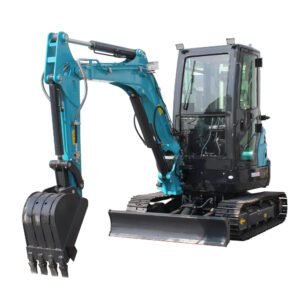
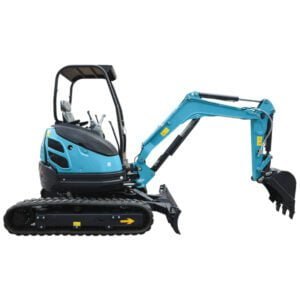
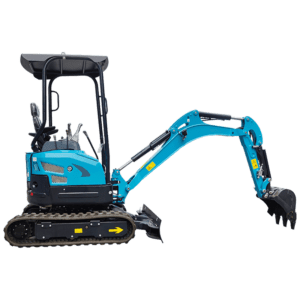

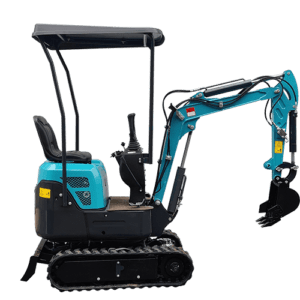

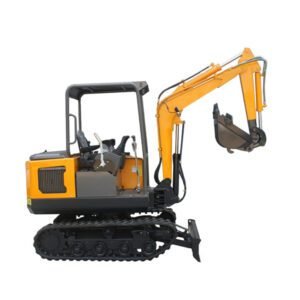

-1.png)